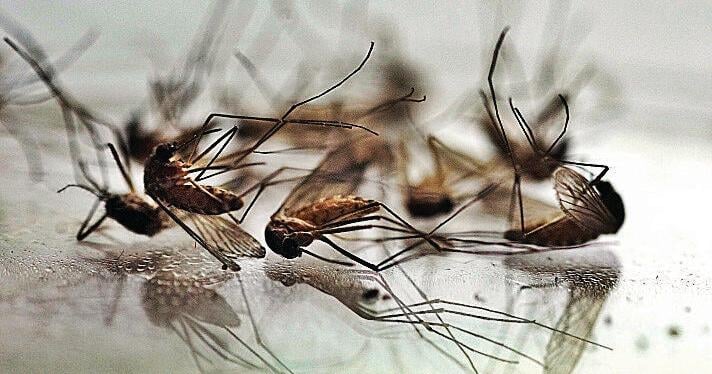West Nile virus detected in hundreds of mosquitoes across Massachusetts, but human cases remain low
By Ben Garver — The Berkshire Eagle,By Alison Kuznitz,State House News Service
Copyright berkshireeagle

BOSTON — State health officials are surprised by the low number of individuals contracting West Nile virus this season in comparison to the hundreds of mosquito samples testing positive for the virus statewide — including in the Berkshires.
Four Bay Staters have been diagnosed with the virus, which is typically transmitted through bites from infected mosquitoes. Meanwhile, the Department of Public Health has identified 408 positive samples throughout the commonwealth, according to Commissioner Robbie Goldstein.
“While we might have expected more human cases given the number of positive mosquitoes, it’s not entirely clear why cases have remained low,” Goldstein told the Public Health Council Wednesday. “Though we hope it’s at least partially due to people practicing precautions to prevent mosquito bites. And although we’re approaching the end of the summer season, the risk of mosquito-borne illnesses lasts until the first hard frost in late fall.”
Goldstein encouraged residents to use mosquito repellant and consider rescheduling outdoor activities during peak mosquito activity hours.
The state Department of Public Health currently lists most of Berkshire County as being at moderate risk for the virus. There have been confirmed reports of West Nile virus in mosquitoes found in numerous Berkshire communities, including at least six in Pittsfield.
In all, there have been 17 mosquito samples that have tested positive for West Nile virus in the county, according to Chris Horton, superintendent for the Berkshire County Mosquito Control Project. No human cases have been reported in the Berkshires, he said.
DPH announced the first human case on Sept. 2, involving a woman in her 70s who was exposed in Middlesex County. A day later, officials said a woman in her 60s contracted the virus in Essex County. DPH reported two more cases on Sept. 5: A man in his 40s who was likely exposed in Hampden County, and a man in his 80s exposed in Middlesex County.
There have no human cases of Eastern equine encephalitis yet this season. The state has identified 21 positive EEE mosquito samples, Goldstein said.
State health officials are also monitoring tick-borne diseases. Hospital emergency departments this spring had recorded a notable increase in visits caused by tick bites. But in his update, Goldstein noted those visits have “declined to more average levels in recent months.”
“However, ticks are frequently a year-round reality in Massachusetts and will remain active as long as temperatures stay above freezing, or unless they’re buried under snow,” said Goldstein, who urged residents to use tick repellant and perform daily tick checks.



